AMD Ryzen 9 9950X3D Review
The AMD Ryzen 9 9950X3D, hot on the heels of its Ryzen 7 9800X3D sibling, brings 3D V-Cache technology to a powerhouse 16-core, 32-thread processor. While undeniably overkill for most gamers, it effortlessly keeps pace with high-end graphics cards like the Nvidia RTX 5090 and beyond. However, this immense power comes at a price—a hefty $699 and a 170W power draw. This makes it a difficult recommendation for anyone not already building a top-tier (and expensive) gaming rig. For most, the Ryzen 7 9800X3D offers superior value.
Purchasing Guide
The AMD Ryzen 9 9950X3D launched March 12th, with a starting price of $699. This is a suggested retail price, and actual pricing may fluctuate based on market demand.
AMD Ryzen 9 9950X3D – Photos
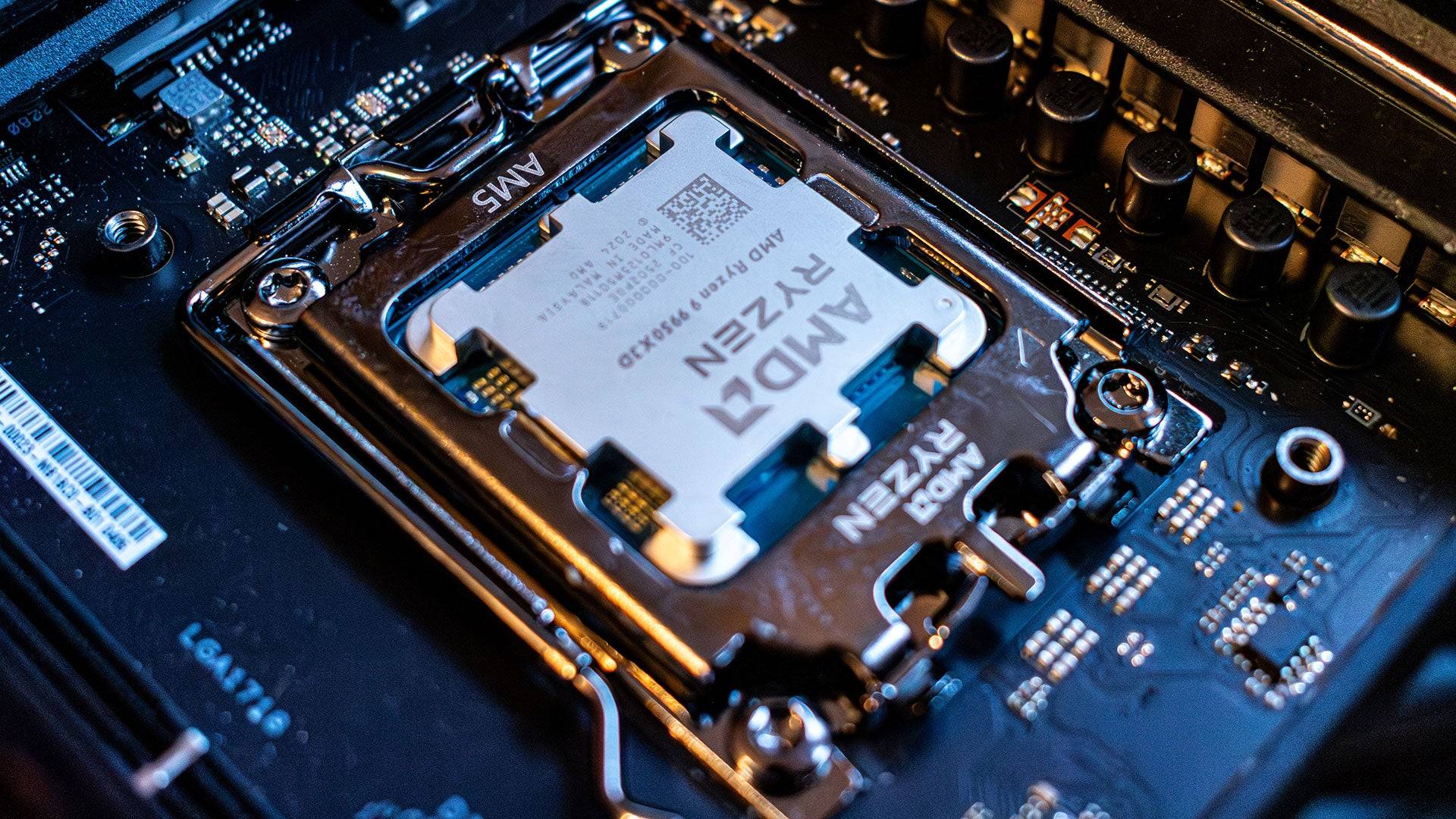
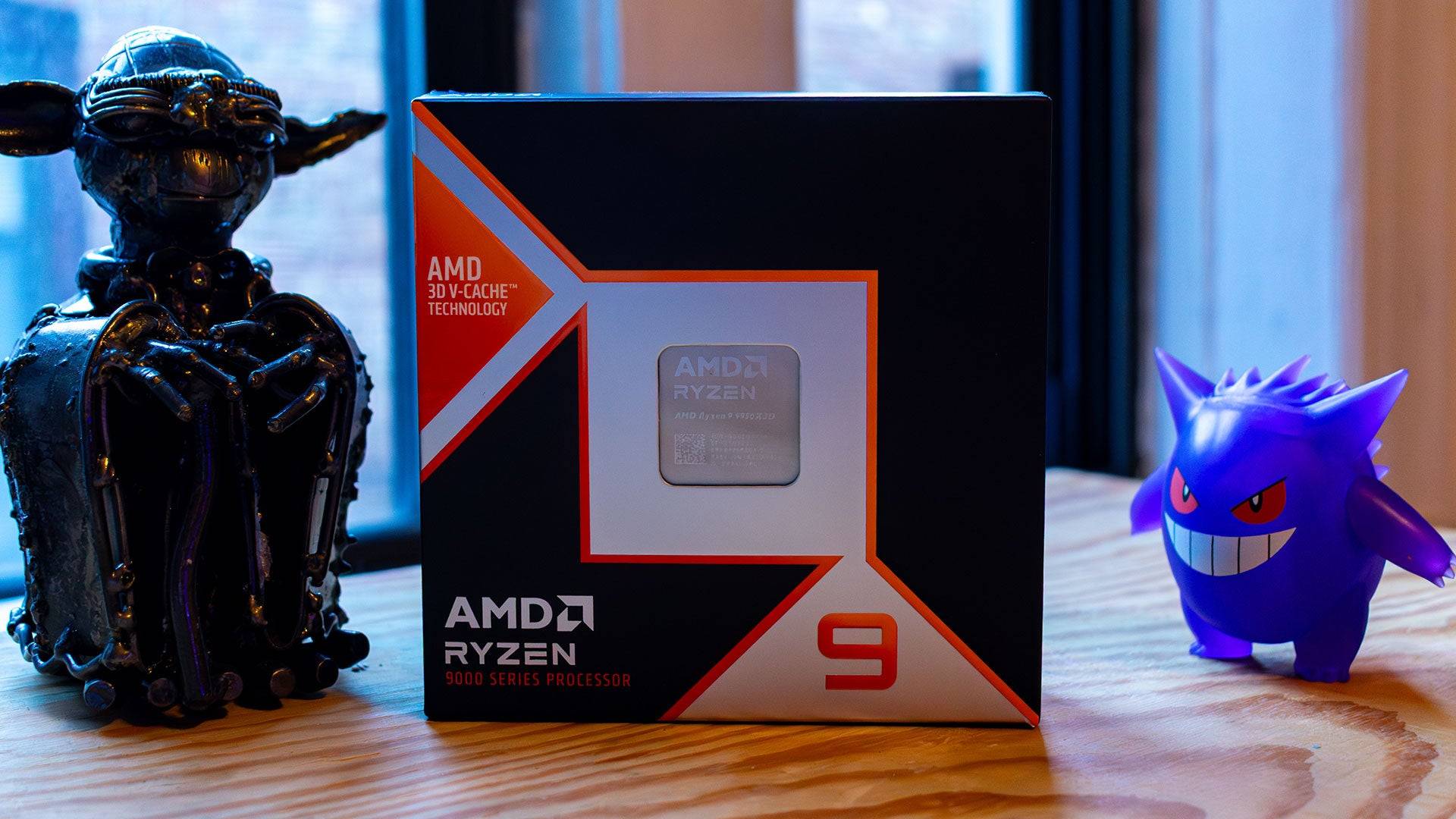
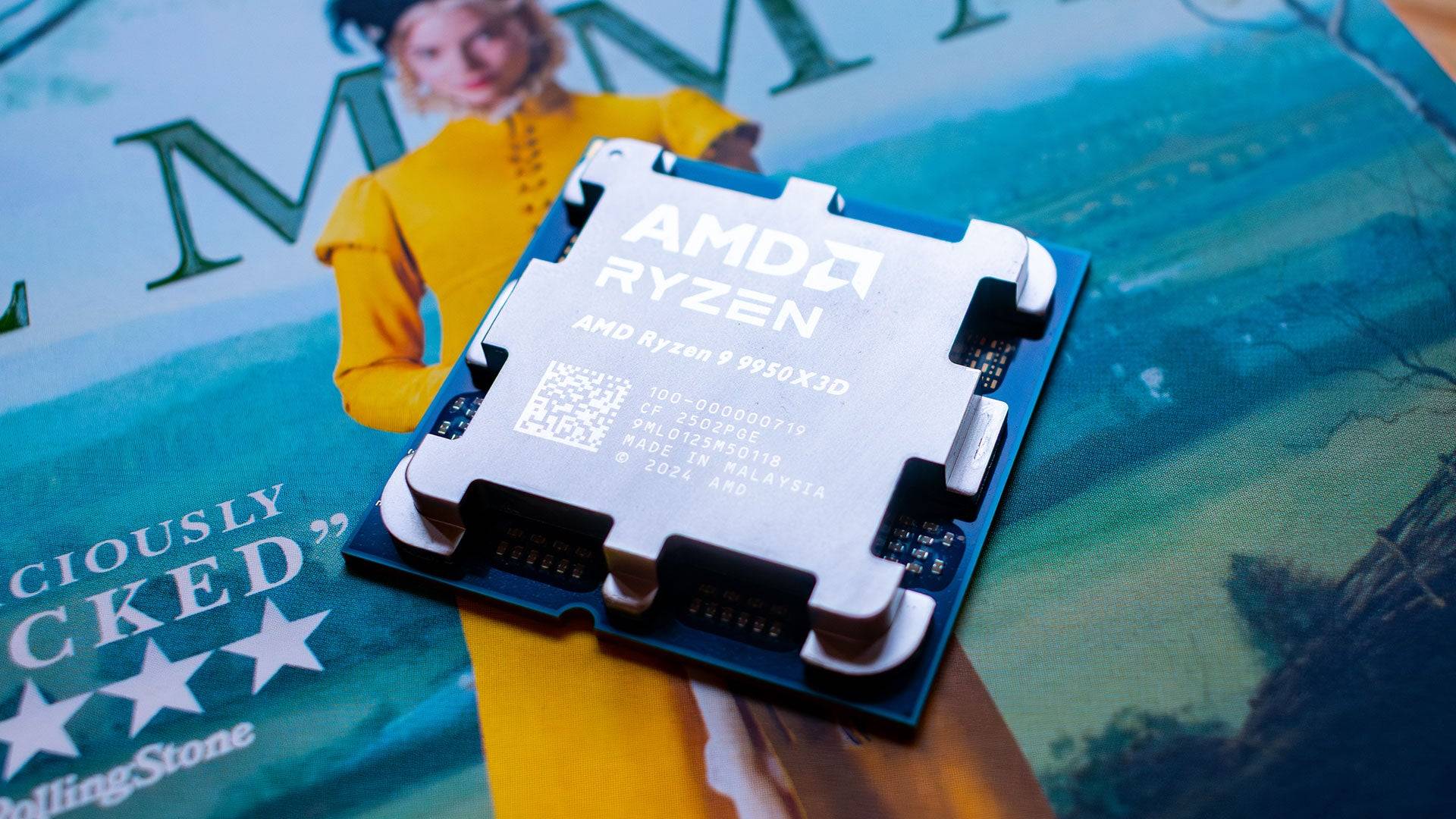
Specs and Features
The AMD Ryzen 9 9950X3D leverages the same Zen 5 cores as the standard 9950X, enhanced by 2nd-generation 3D V-Cache, mirroring the Ryzen 7 9800X3D. This combination delivers exceptional multi-core performance alongside improved gaming capabilities thanks to the expanded cache.
A key difference from its predecessor, the Ryzen 9 7950X3D, lies in the 3D V-Cache's placement. Now situated directly beneath the CPU cores, rather than above, this seemingly minor adjustment significantly impacts thermal performance. The Core Complex Die (CCD), the primary heat source, is closer to the Integrated Heat Spreader (IHS), facilitating more efficient heat dissipation. AMD's performance algorithms leverage this improved thermal headroom, allowing the 9950X3D to run faster and for longer durations.
This cache placement optimizes more than just cooling. The reduced data travel distance translates to lower latency. The increased space allows for a substantial 144MB of combined L2 and L3 cache—identical to the last-generation Ryzen 9 7950X3D and far exceeding non-X3D processors.
Both the AMD Ryzen 9 9950X and 9950X3D share a 170W TDP, although the original 9950X boasts a higher potential PPT. Testing revealed both processors peaking around 200W, but the 9950X3D exhibited lower peak temperatures (79°C during testing), although tested on a different cooler than the original 9950X.
Compatibility is simplified by the 9950X3D's use of the existing AM5 platform. AMD's commitment to AM5 support until at least 2027 ensures future-proofing your investment.
AMD Ryzen 9 9950X3D – Benchmarks
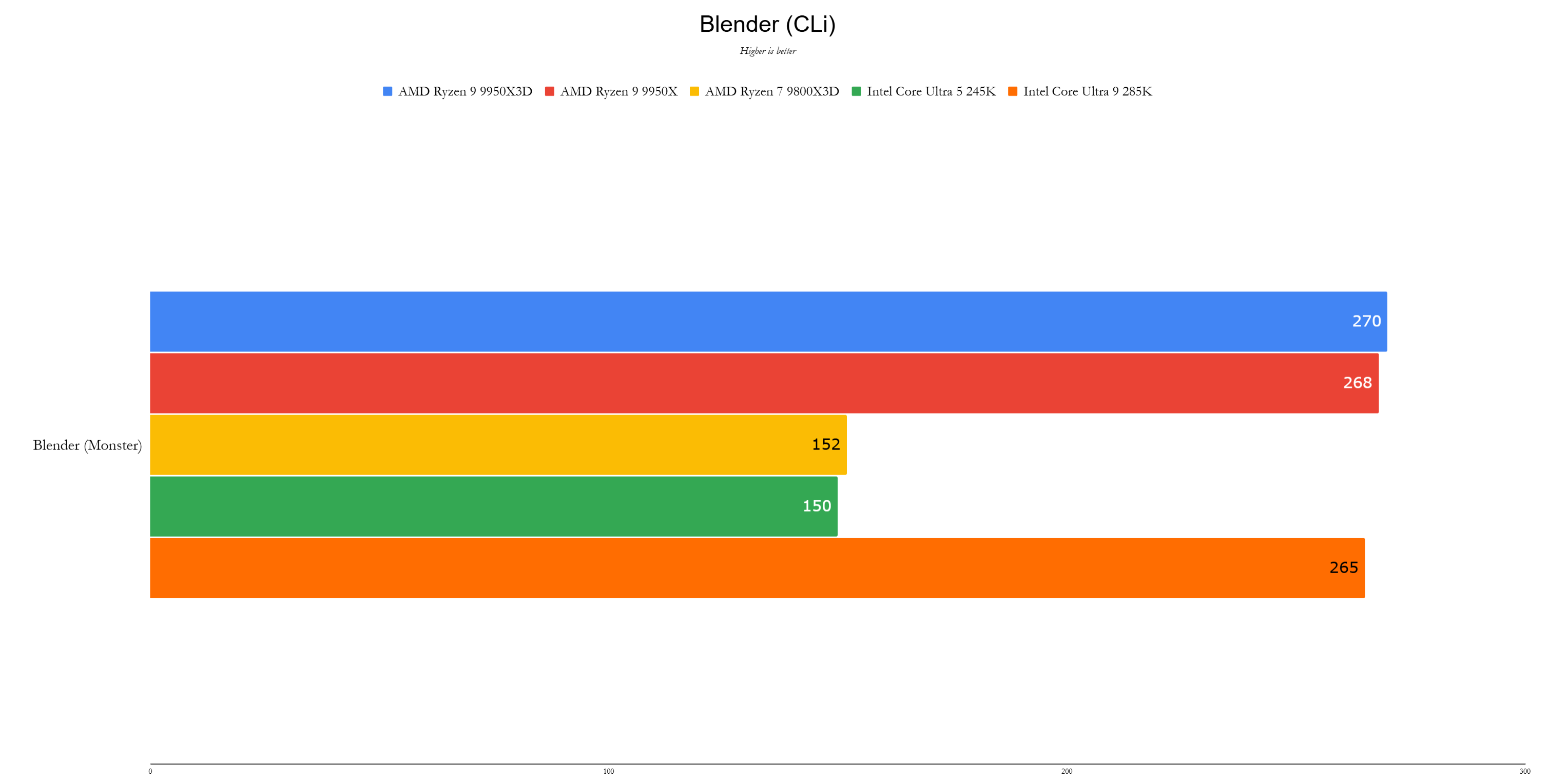
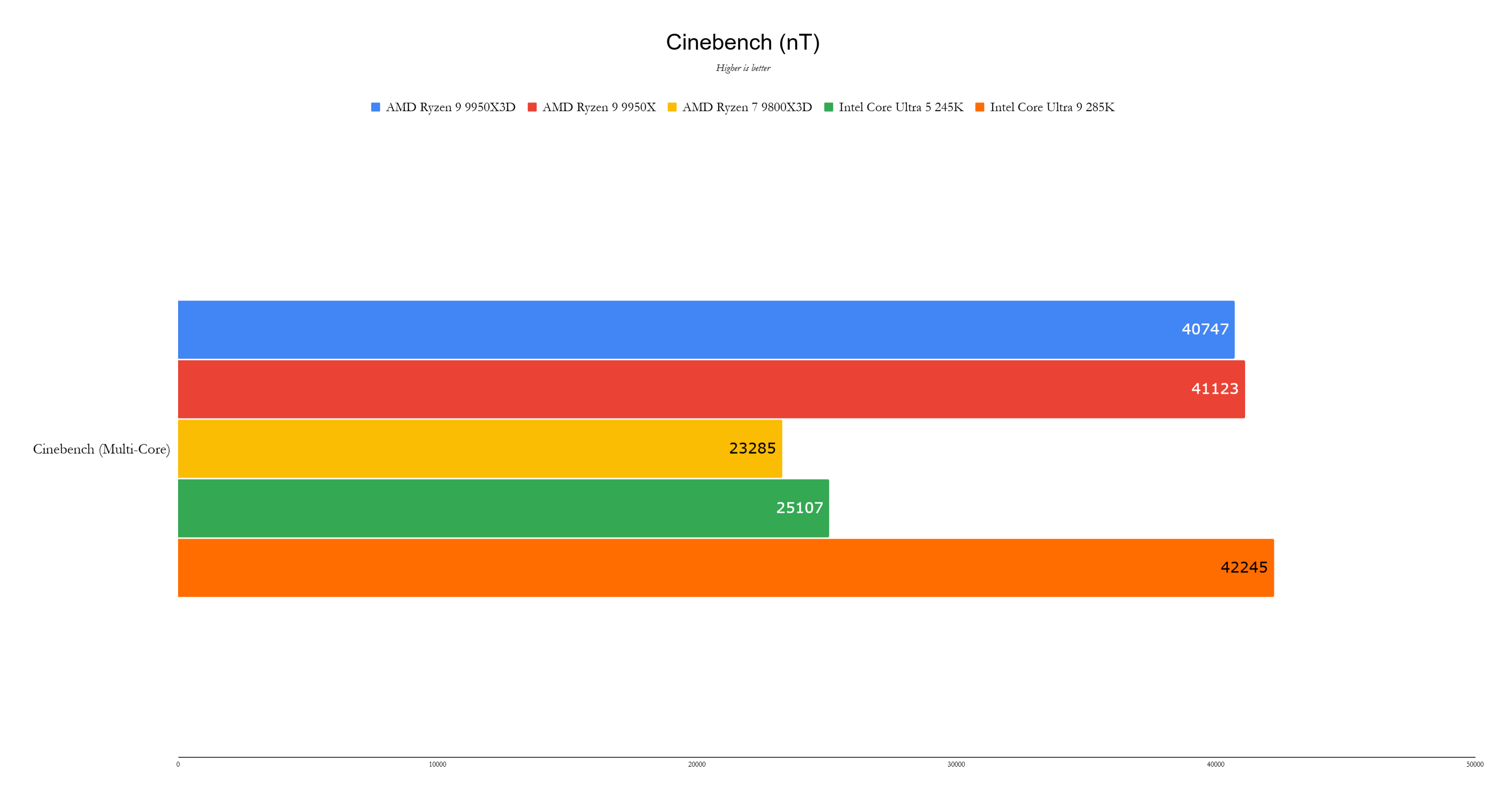
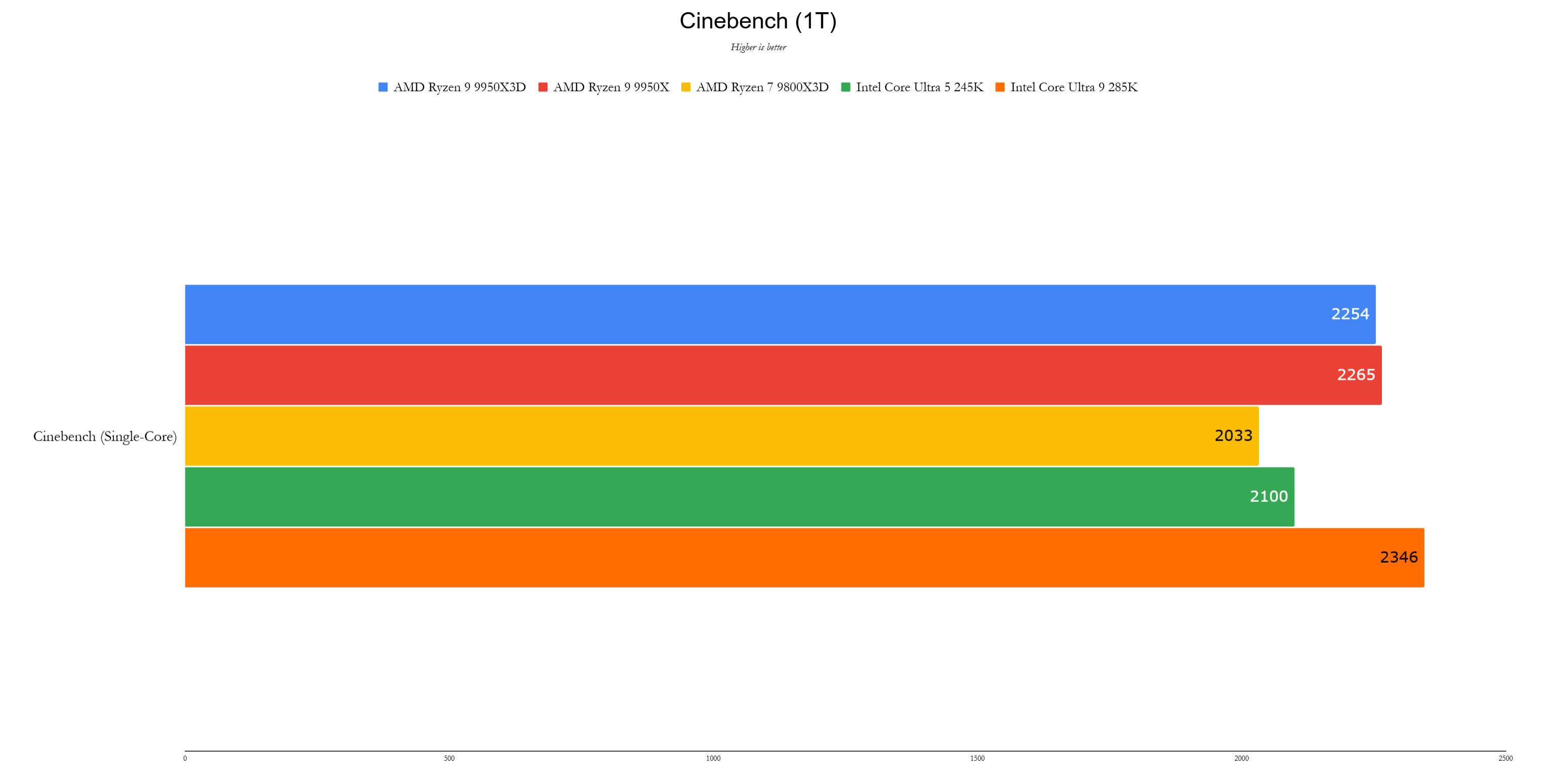
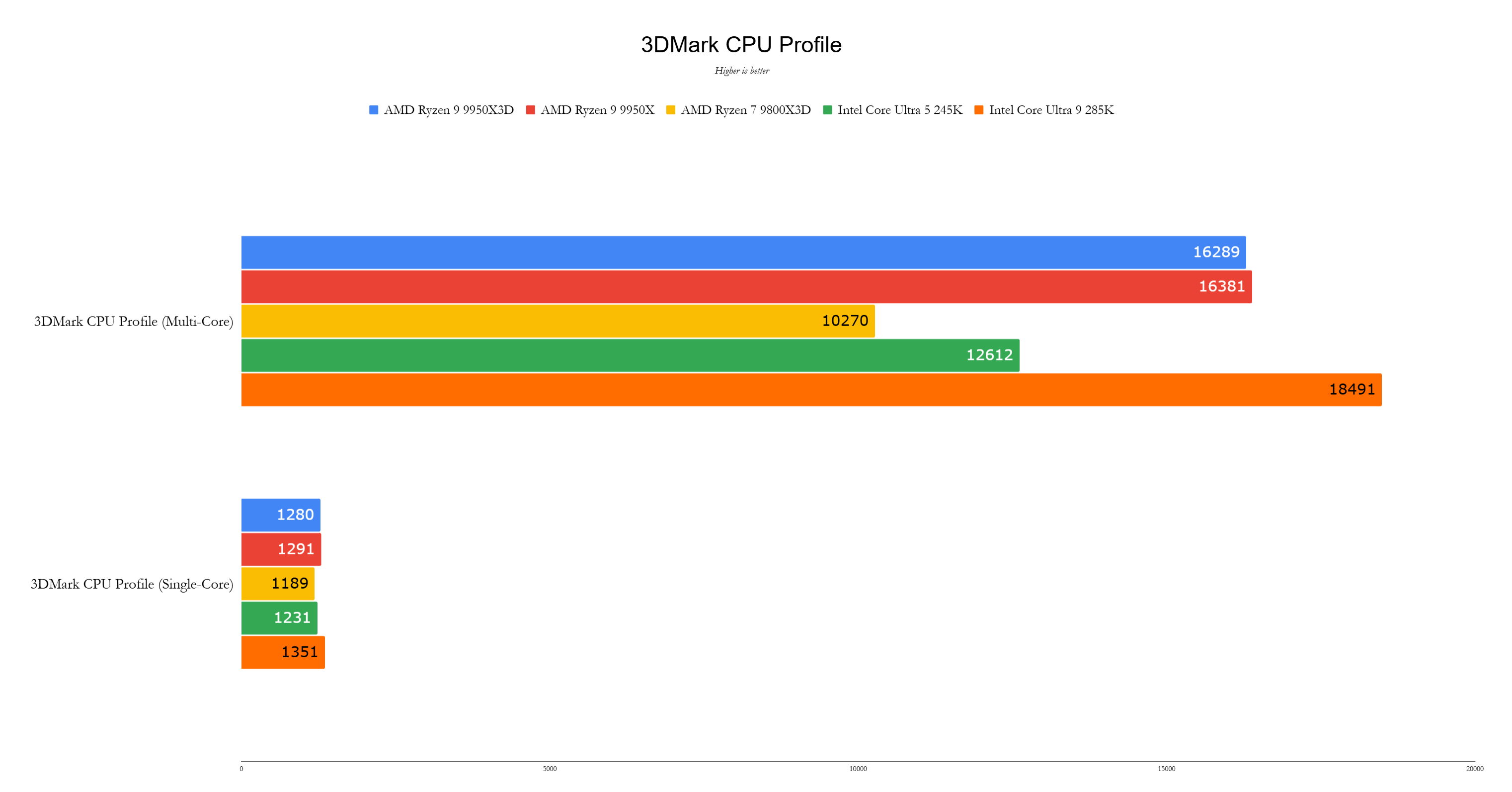
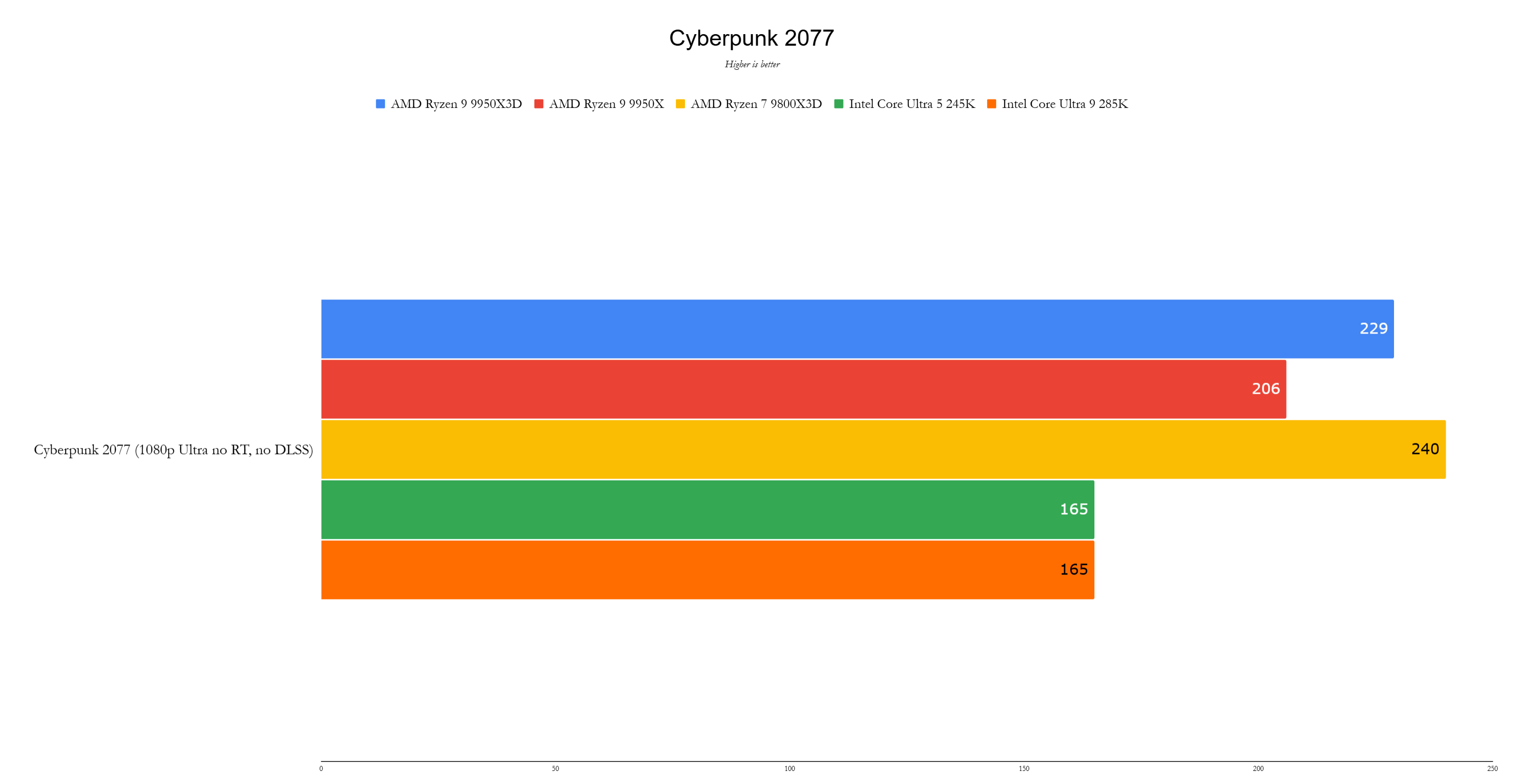
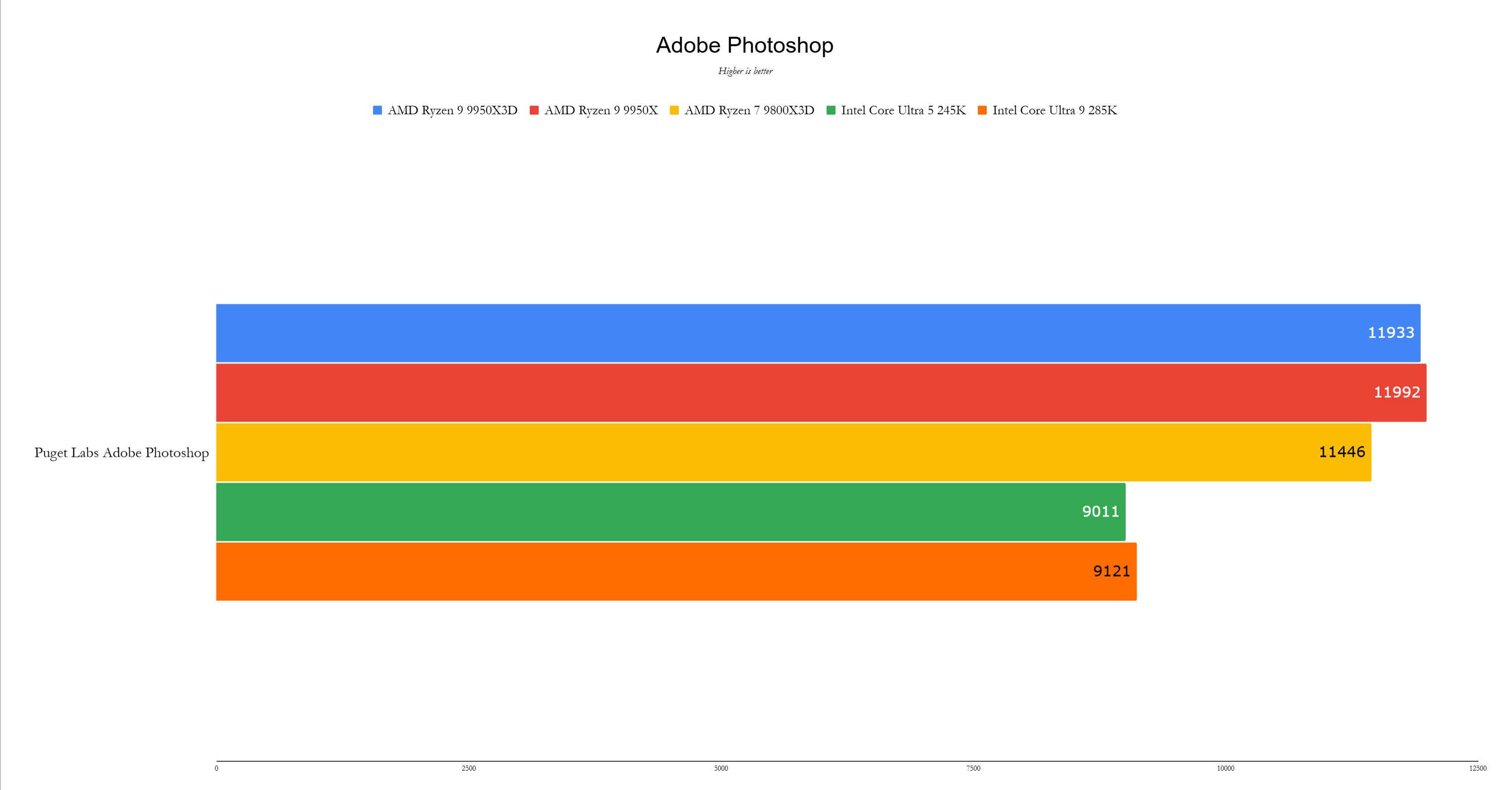
Performance
All CPUs were tested on identical hardware, except for the Ryzen 9 9950X (Asus ROG Crosshair X670E Hero motherboard with Corsair H170i 360mm AIO cooler). This hardware difference will impact performance, though likely not significantly, especially with stock settings.
AMD Test Bench: GPU: Nvidia GeForce RTX 4090; Motherboard: Asus ROG Crosshair X670E Hero; Asus ROG Crosshair X870E Hero (9800X3D); RAM: 32GB G.Skill Trident Z5 Neo @ 6,000MHz; SSD: 1TB PNY CS3140 Gen4x4 NVMe SSD; CPU Cooler: Asus ROG Ryujin III 360 ARGB Extreme. (Note: A mounting screw issue with the 9950X cooler necessitated this variation. Further testing is planned.)
Intel Test Bench: GPU: Nvidia GeForce RTX 4090; Motherboard: Asus ROG Maximus Z890 Hero (200S); Asus Prime Z790-A (14th-Gen); RAM: 32GB Corsair Vengeance DDR5 @ 6,000MHz; SSD: PNY CS3140 1TB Gen 4 x 4 NVMe SSD; CPU Cooler: Asus ROG Ryujin III 360 ARGB Extreme.
The Ryzen 9 9950X3D's 16 cores, 32 threads, and massive 144MB cache deliver exceptional performance. It excels even in creative tasks where the 9800X3D lags, easily matching top-tier processors. Surprisingly, the 9950X3D also holds its own against the 9800X3D in single-core workloads (10% improvement in Cinebench 1T). 3DMark CPU Profile scores place it close to the Intel Core Ultra 9 285K.
Multi-threaded performance is where the 9950X3D shines (40,747 points in Cinebench multi-core). While slightly behind the 9950X and Intel Core Ultra 9 285K in some multi-threaded applications, the gaming performance gains justify the trade-off.
In Total War: Warhammer 3 (1080p Ultra), the 9950X3D achieves 274 fps (vs. 254 fps for the 9800X3D and 255 fps for the Core Ultra 9 285K). Cyberpunk 2077 (1080p Ultra, ray tracing off) shows 229 fps (vs. 240 fps for the 9800X3D and 165 fps for the Intel processor).
Overkill?
The AMD Ryzen 9 9950X3D is currently a top gaming processor, but not necessarily the best choice for everyone. The Ryzen 7 9800X3D offers significantly better value at $479.
The 9950X3D targets users needing both gaming and creative application performance (15% improvement over the 9800X3D in applications like Photoshop and Premiere). For pure gaming, investing the extra $220 in a better graphics card might yield better results.
- ◇ AMD Ryzen 7 9800X3D: Top Gaming CPU Now Back in Stock on Amazon May 25,2025
- ◇ "Best Buy Launches AMD Radeon RX 9070, 9070 XT Gaming PCs" May 04,2025
- ◇ AMD Zen 5 Gaming CPUs Restocked: 9950X3D, 9900X3D, 9800X3D Now Available Apr 11,2025
- ◇ Amazon Slashes Price on AMD Radeon RX 9070 XT Gaming PC Mar 29,2025
- ◇ Where to Buy AMD Radeon RX 9070 and 9070 XT Prebuilt Gaming PCs for as Low as $1350 Mar 19,2025
- ◇ AMD Radeon RX 9070 Review Mar 19,2025
- ◇ The Powerful AMD Zen 5 9950X3D, 9900X3D, and 9800X3D Gaming CPUs Are Now Available Mar 18,2025
- ◇ Tech Deals: PS Portal, PS5 Controllers, Ryzen CPUs, iPad Air Mar 14,2025
- 1 Roblox Forsaken Characters Tier List 2025 Feb 14,2025
- 2 Pokemon Go’s first Community Day of 2025 will feature Sprigaito Jan 05,2025
- 3 Marvel Rivals' Controversial Hitbox System Draws Attention Feb 11,2025
- 4 Watcher of Realms Is Dropping New Heroes and Skins This Thanksgiving and Black Friday! Dec 30,2024
- 5 Holiday Thief Arrives in Seekers Notes Dec 26,2024
- 6 How To Find and Beat the Storm King in LEGO Fortnite Jan 05,2025
- 7 Jujutsu Kaisen Phantom Parade: Tier List Update for 2024 Dec 28,2024
- 8 Goddess Of Victory: Nikke Is Dropping a New Year’s Update and Collabs with Evangelion and Stellar Blade Soon Jan 04,2025
-
Mastering the Art of Digital Tools
A total of 10
-
Hidden Gems: Unexpectedly Useful Other Apps
A total of 10
-
Ultimate Strategy Gaming Experience on Android
A total of 10















![LeMOMnade: Family Squeeze! – Version 1.1.1 [mtrellex]](https://img.3xbz.com/uploads/38/1719569762667e8d62c486e.jpg)

![My Cute Roommate 2 – New Version 1.0 Extra [Astaros3D]](https://img.3xbz.com/uploads/38/1719606486667f1cd652f1a.jpg)












